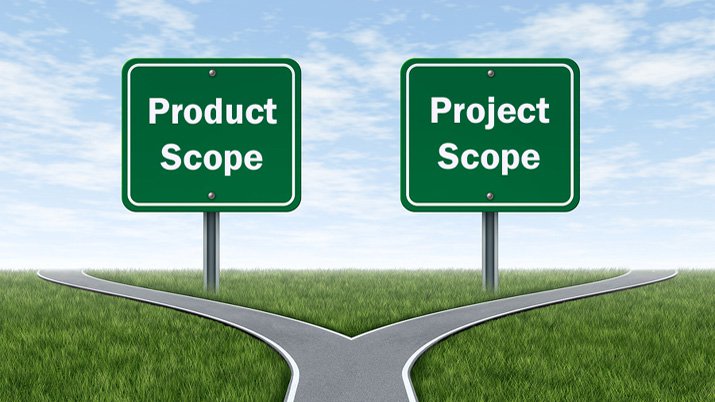Project Scope vs. Product Scope

Last Updated March 8, 2024
Two terms can sometimes cause confusion for aspiring project management professionals: project scope and product scope. While the term scope refers to the overall goals of a project, the two constituent forms of scope are less clear-cut. Any confusion for the project management beginner is understandable, particularly since project scope and product scope work together in some ways.
What is Project Scope?
Project scope focuses on the various steps taken to deliver a product or service. Project scope can include, among other things, assembly lines, budgets, staff training, supply chains and personnel allocations. Basically, it refers to anything that is needed in order to arrange the production or implementation of a good or service.
Think of project scope as the work required to get to a final product. It does not include how the actual product functions, but rather what tools, equipment or processes will be necessary for managers to deliver the product. In this sense, project scope and product scope are tied to each other: You can’t consider product deliverables (product scope) without considering the various tasks or steps needed to get to that point (project scope).
What is Product Scope?
Product scope can be defined as the features or characteristics of a product itself. Whether considering design, function or component parts, the key point is that product scope refers to the actual tangible product. In the case of a good, questions of product scope would address how it works, how it is physically made and how it can be improved in future iterations.
Product scope does not have to refer to goods. Services or other forms of output can also be products as long as their production is the end goal of a process. In the case of a service, product scope focuses on the actual tasks and responsibilities of the personnel delivering the service. For example, it often suggests the ways that the service can be measured and improved for future customers or clients.
The Difference Between Project Scope and Product Scope
To illustrate the difference between project scope and product scope, let’s take a look at an example.
A manager is tasked with providing a new data center for an organization. In this case, product scope would include the tangible details of the final deliverable: the computers, servers, office space, network connectivity and requisite software. The overall product is the data center itself, and the product scope consists of the component parts that together make up the new data center.
Project scope, however, would focus more on the process of getting from empty space to a fully functioning data center. It would include corresponding with contractors and designers, acquiring each of the physical parts mentioned above, providing project documents to managers and team members and setting overall budgets and timeframes for final delivery. Project scope is every step taken to get from start to finish, and while it does include considerations of how to get the product’s parts, it does not address what those parts should be or how they should work together. Where product scope tells us what we need for the finished data center, project scope tells us how to get there.
Learn More About Scope in Project Management
Managing project scope is a primary concern for project management professionals when working on complex projects. Through the project management certificate program, aspiring project managers will learn the scope management processes involved in managing and defining a project’s parameters to ensure project success.




